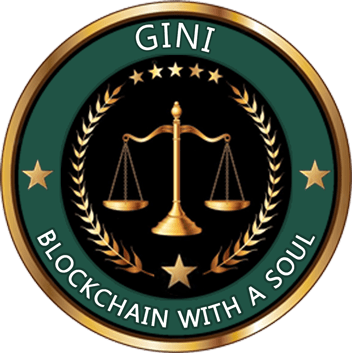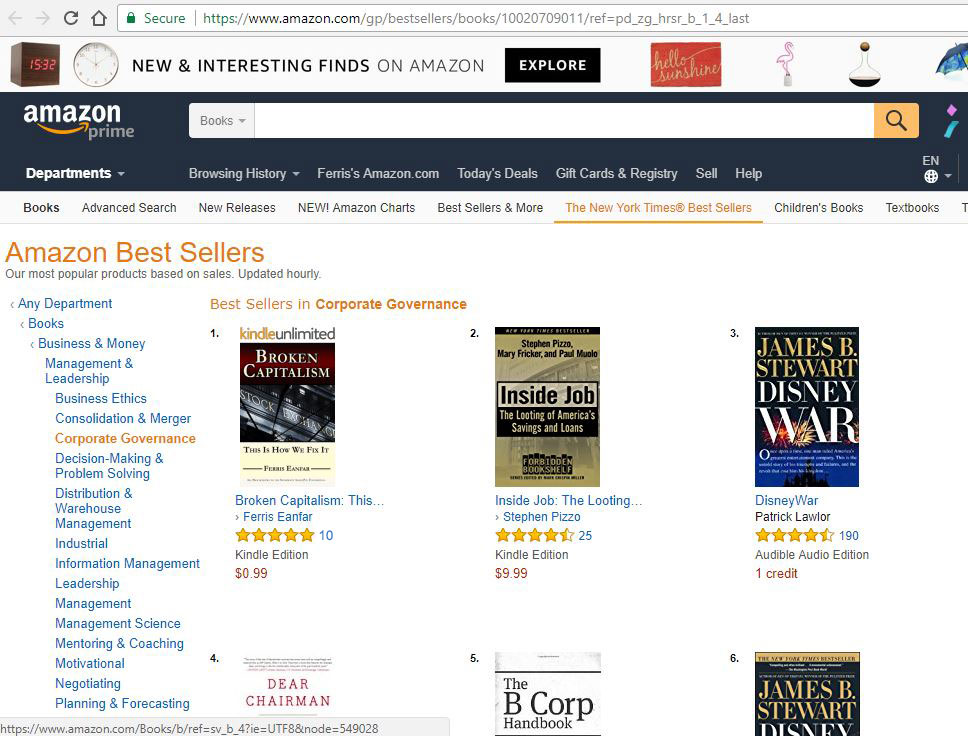Paths to Truth or Fiction? There can be many paths to truth, but truth only exists when it’s supported by verifiable facts. When a given path (e.g., in alphabetical order, Al Jazeera, BBC, CNN, Fox News, RT, Wikileaks, Wikipedia, or a book, article, corporate memo, direct life experience, etc.) leads us to a given fact, that fact is either verifiable or not. If it’s not verifiable by you directly or by a trusted nonpartisan and disinterested source, then it’s not truth; it’s merely a path to speculation, fiction, propaganda, self-delusion, or blatant lies and deception.
The U.S. Propaganda Bubble. U.S. foreign policy and the policies governing healthcare, international trade, the money supply, K-12 education, banking regulations, national security, the judicial system (“legal racket”), intellectual property, corporate governance and many other domains of American public life have become insane parodies of good national governance. Politicians dance like court jesters to the mind-controlling tune of their corporate snake charmers. “At least the U.S. is not like ______,” some people say, as if mentally captured by a psychological stew of Stockholm Syndrome and nationalistic masochism. For people living in many well-governed countries today, the U.S. Government is perceived as a lurid comedy of errors. But nobody is laughing because the U.S. Military and Transnational Cannibals impact the planet like a rusting, rudderless Titanic driven by a drunken sailor, recklessly slamming into the harbors of every country.
Triangulating Truth. Based on several techniques that I’ve learned from working inside the U.S. Intelligence Community and from developing my own research techniques over the years, I have a systematic, multi-source approach to truth verification. It’s based on a triangulation process that enables me to efficiently analyze numerous channels of information and identify the factual consistencies and inconsistencies within each channel. The process also includes an analysis of the incentives of the entities distributing the information within each channel. The result is the highest probability truth for any given situation. I say “highest probability” because:
(1) technically speaking, all truth is probabilistic for many reasons beyond the scope of this article;
(2) it can take a significant amount of time to triangulate verifiable truth for any given issue; and
(3) all truths are not equally critical to our daily lives at every point in time; thus, given each person’s time and resource constraints, we all must prioritize our time and resources to focus only on seeking truths that are most important to what we want to accomplish at any point in time during our lives.
Should We Believe in Conventional Wisdom? Usually, the humans with the least outrage in response to any systemic malfunction are the humans who benefit most from the status quo. “It’s just the way it is and there’s nothing we can do about it,” is a sentiment shared by many of my peers today regarding the state of the U.S. economy, its political system, and the global economy. Many people conceal their self-interest with lazy or disingenuous platitudes masquerading as conventional wisdom, while failing to acknowledge that “conventional wisdom” is, by definition, a product of a systemic status quo that is reinforced by their silence and acts of omission.
Tyranny of Experts. So-called experts invoked their anti-competitive free-market wisdom to justify their wanton deregulation of the financial services sector and the largest corporate welfare bonanza in human history. The so-called experts falsely claimed the 2008 Wall Street Communist Revolution (i.e., multi-trillion-dollar corporate socialism) was systemically preferable to an orderly liquidation of the toxic assets and companies that were responsible for blowing up the global economy. Most of the greatest atrocities in human history have been perpetrated by so-called experts peddling conventional wisdom, which they’ve used to justify all manner of self-serving economic and social engineering policies. This is why we should never assume that any expert or conventional wisdom represents verifiable truth without triangulating the truth for ourselves.
Why Are Propaganda Bubbles so Difficult to Escape? Regardless of intelligence or age, it’s difficult for people inside institutional or cultural propaganda bubbles to see the world accurately. Human perception is only as accurate as the accuracy, relevance, timeliness, and completeness of the most dominant channels of available information. If people feel they’re too busy to do their own multi-source research, then channel proximity, message frequency, and convenience often become unconscious proxies for accuracy and truth. The words used to describe reality in corporate- and government-controlled channels are carefully curated by people we often can’t see, whose intentions we usually can’t directly discern. Nevertheless, these channels are usually trusted due to habit, convenience, cultural and time pressures, and biological instincts, none of which have anything to do with truth.
Humans Are Wired to Trust Authority. The human brain is wired to give deference to sources of perceived authority, including employers, governments, and societal institutions, because the human mind does not function well with constant uncertainty. This is an effective evolutionary adaptation when you are living in a tribe or society that actually wants to survive. In contrast, many societies today are being sabotaged from within by Transnational Cannibals that exploit this evolutionary instinct to enrich themselves, leaving disemboweled societies in their wake. This impulse to trust authority is why corporate, government, and institutional scandals seem so shocking to many people, despite the predictably constant stream of major corporate, banking, and political scandals over the past several decades.
Institutional Propaganda is Inevitable when Structural Incentives Are Broken. Scandals are inevitable in every organization when the incentive structures in a society conflict with the best interests of that society and when the society fails to hold their so-called experts and leaders accountable for their self-serving actions. When a society’s incentive structures are broken due to corrupt or dysfunctional government, individuals are allowed to exploit institutional power to enrich themselves, conceal truth with propaganda, and suppress competition to their power. This can only occur when the society’s systems of accountability have been hijacked.
Humans Fight Truth If It Creates Uncertainty. Many people understand the concept of institutional corruption in the abstract, but unless they have seen it first-hand and/or suffered traumatically from it, it’s nearly impossible for them to grasp how it permeates every aspect of their existence when they’re living inside an institutional or cultural propaganda bubble. Like the Matrix and the 2008 financial crisis: Most people inside the bubble don’t even know there is a bubble until it pops and they get hurt from it. Until then, they strongly resist the truth because the propaganda bubble feels safe and certain. That’s what many people really want, not truth. If safety and certainty happen to coincide with the truth, they will quickly embrace it. If it doesn’t, they will fight the truth all the way up to the moment the bubble pops and the feeding tube is painfully ripped out of their heads.
Are You Living in a Propaganda Bubble? Unless you force yourself to read news produced by multiple sources outside your home country and books written by authors not dependent upon corporate or government largess, then the answer is almost certainly “yes.” Compared to relatively low-propaganda governments known for high-quality governance (e.g., in Switzerland, Singapore, Denmark, Germany, and New Zealand), most countries on Earth today are saturated with propaganda. This results in empirically lower institutional integrity within their governments and corporations (i.e., much more corruption), which results in empirically lower quality of life for their citizens, less economic stability, less liberty, more foreign conflicts, among other social and economic maladies. I emphasize “empirically” to preemptively refute anybody who thinks this is based merely on subjective opinions. And I provide a lot more empirical data and references in my book.
An Important Path to Truth. Broken Capitalism: This Is How We Fix It is a byproduct of my resistance against the intense propaganda that permeates every aspect of American life today. Finding and sharing truth and solutions to restore integrity and trust in our planet’s economic and political systems has the most direct and meaningful impact on the lives of every human on Earth today. The book presents an important path to nonpartisan truth, which I hope you enjoy.
About Ferris Eanfar
Ferris Eanfar has over 20 years of experience in technical, financial, media, and government intelligence environments. He has written dozens of articles and several books in the fields of Economics, Crypto-Economics, and International Political Economy, including Broken Capitalism: This Is How We Fix It and GINI: Capitalism, Cryptocurrencies & the Battle for Human Rights and the Global Governance Scorecard. Ferris is a cofounder of the Gini Foundation, which builds unique cryptocurrency systems to protect human rights, among other benefits; and the CEO of the AngelPay Foundation, a nonprofit financial services company with a mission to “return wealth and power to the creators of value.” To learn more about Ferris, please visit the About Ferris page.Visit Ferris on:

 Gini Website Coming Soon. We (
Gini Website Coming Soon. We (
